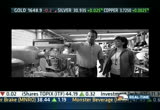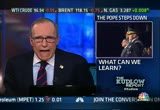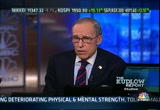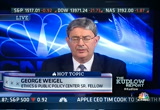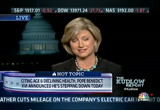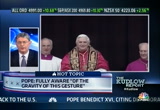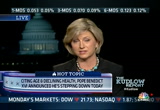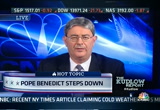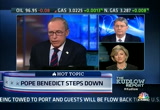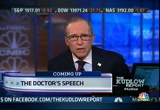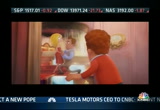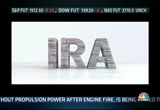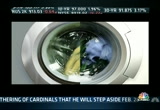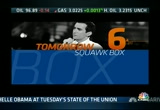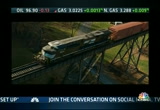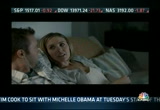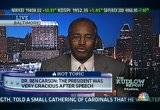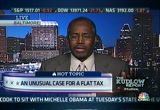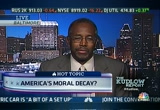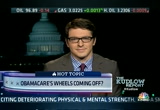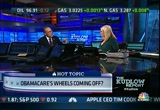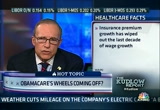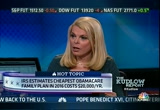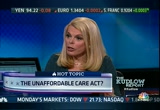tv The Kudlow Report CNBC February 11, 2013 7:00pm-8:00pm EST
7:00 pm
7:01 pm
this is the only thing we've ever wanted to do and ink helps us do it. make your mark with ink from chase. i'd like to say there's a bull market somewhere. i promise to find it just for you. right here on "mad money." i'm jim cramer. and i will see you tomorrow. good evening, everyone. i'm larry kudlow. this is "the kudlow report." the holy father pope benedict xvi announced he will abdicate at the end of this month. health concerns and his worry that he will not be able to adequately lead the world's catholics are the main reasons
7:02 pm
why. is this a lesson to the world's politicians and ceos? i say you bet it is. also tonight, president obama's state of the union address tomorrow night supposed to be about improving the economy and saving jobs. but i'm hearing tax increases. do they have any faith in this white house? what are they worried about? and can the stock market rally continue if washington starts to meddle again too much? we'll ask top names like bob lutz, obama supporter robert wolfe, and many more. speaking of government meddling, red flags up again about obama care. killing jobs, even government jobs. one of the nation's most prominent surgeons told president obama to his face at last week's national prayer breakfast that he has a much better idea nap surgeon is going to join us this evening. "the kudlow report" begins right now.
7:03 pm
first up, call it the marijuana shocker. the pope is stepping down. pope benedict xvi announced his decision this morning saying he no longer has the strength to carry on with his mission as the leader of the 1.2 billion catholics around the world. here now is news vatican analyst george wiegel. and spokeswoman kathy ruse, now with the family research council. good to see you. i'm not kidding. i think this is the most profound act of humility and something that everybody in the world can learn from. your take? >> i think that's right, larry. this is a man of faith. he's a real disciple of jesus christ. he wants to serve. and when he can no longer serve in the way he's been called to serve as bishop of rome, he's prepared to serve by retiring to
7:04 pm
a private life of prayer and reflection. that's a great act of service to the church, and it's a great expression of the character of joseph ratzinger. >> kathy, let me go to you on this. what was your first reaction when you heard about this today? were you surprised? there's a lot of rumors around new york, by the way, that cardinal egan had been working on this for awhile and it had been kept silent but not entirely. were you shocked at this? what was your first reaction? >> absolutely shocked. thought it was a farce. had to look it up five times to see it was real. it's sad. really sad. i love this pope. there's so much love for this pope. and even though he's still going to be with us, it's really like a mourning of him, i think. some of us are experiencing. but i like what you said about humility. when we look at john paul ii's end, many people came away with
7:05 pm
his public suffering and death as thinking he's teaching us how to die. and now look at this pope. he's teaching us how to be humble. i think it's a beautiful lesson from pope benedict. >> george, it's a complicated question. but in a word as briefly as you can, how do you see pope benedict's legacy? >> he's the pope who completed the work of the second council. with his predecessor gave that council an authoritative representation. they opened the door to the church of the third millennium, or as i've called it angel kal catholicism. benedict xvi will be the last pope to attend vatican two. so we're in an end moment. but he's prepared us well to walk through the door into an evangelical future. >> i want to pursue that
7:06 pm
catholic evangelicalism. i remember cardinal ratzinger before he became pope talked about making another stab at getting europeans back into the catholic church. making europe a less secular society. did he succeed? or is it just too difficult? >> well, he clearly made it one of his aims, the rechristianization of this old europe and the dying faith. he made great strides. one of the things -- one of the takeaways from this pontifficate is christianity is actually a relationship. it's a relationship with the person. and that person is jesus christ. and so that is one of the messages that is part of this new evangelicalization. >> george, let me ask you. is there going to be any changes in church dogma? i already hear liberals and
7:07 pm
lefties on the tv media talking about this that and the other thing. expect any changes? things like female priests. things like the church's attitudes towards the pro life movement. things of freedom of religion. >> we cardinals, larry, know that the growing part of the catholic church around the world is the church that -- to deconstruct that. catholic light has no future. so this is all rather silly. we're not going to see changes in the catholic doctrine because that doesn't change. the question is how does the next pope and the bishops he appoints and the priests they ordain and all the people of the church live this new -- have called us to.
7:08 pm
>> cathy, february 28th is the conclave. who's your favorite right now? give me a pick. >> i have no picks, but it's interesting. every single cardinal in the college was appointed by either pope john paul ii or benedict xvi. there are three under the age of 60. there are a number of them between 60 and 70. there are a lot of young cardinals. nobody can vote if you're over 80. benedict will not be voting. this is a good college. it will continue. it will be in harmony with the two popes that elevated these men. so i don't think there's any question about that or any kind of big surprise that may come out when we see the white smoke. i think it's frankly pretty exciting. >> george weigel, last one. some controversies during this pope's reign. particularly the whole sexual abuse thing which came crashing down on the catholic church. has it healed in your judgment?
7:09 pm
>> there are certainly places in the church where it hasn't healed yet. ireland comes to mind. certainly parts of our own country where we're still dealing with the afterburn of abuse committed 20, 30, 40 years ago. but this pope was, i think, quite vigorous in his attempts to root out of the church this wickedness. and i am completely confident that his successor will continue to do that. >> thank you very much, both of you. we appreciate it. george weigel and cathy ruse. investors seem bullish right now but are business leaders just as optimistic? that's next up. later in the show, most talked about speech in america. no, not the state of the union. it's the national prayer breakfast speech made by dr. benjamin carson right in front of president obama. we're going to be playing the highlights of that speech throughout the show. and we talk later with dr.
7:10 pm
carson. live in this show you'll hear the whole story. whether carson knows free market capitalism is the path to prosperity. i believe he does. >> why is the eagle able to fly high? forward. because it has two wings. a left wing and a right wing. enough said. music: "make someone happy" music: "make someone happy" ♪it's so important to make someone happy.♪ it's so important to make someone happy.♪ ♪make just one someone happy ♪and you will be happy too.
7:13 pm
the market rally took a breather today. but the big question for us tonight. are we entering a long-term secular bull market? many business executives, however, are less optimistic than a bunch of investors. let's talk. here's jimmy rogers. author of the new book "street smarts." and we have zane brown and bob dall. jimmy, thanks for coming back. there's a wonderful call i picked up. i think it will be up on the full screen. the world is on the verge of a transition away from finance itself as a source of prosperity. and then you go on to say the
7:14 pm
money shufflers are in decline. and the hewers of wood and drawers of water will now inherit the earth. i love that, but you have to tell me what it means. >> throughout history we've had long periods when the financial types were in charge. then the people who produce real goods, farmers, miners, lumber jacks, et cetera were in charge. followed by finance again. well, finance has had its day. larry, there are hundreds of thousands of mbas, huge leverage in the financial system and governments don't like us anymore. they're coming down with regulations, controls, special taxes because they want to throw blame on the financial types. all those kids who got mbss, they made a mistake. they should have gotten agricultural degrees. >> okay we'll go back to working with your hands with technological style. can we get a new long-term secular bull market if this transition away from finance as
7:15 pm
you put it occurs? >> long-term bull market in some things, yes. farming is going to be a fantastic business. farming's been a disaster for 30 years. it's now going to be a fantastic place to be. the people who produce real things. forget finance. it's not going to be a great -- when i went to wall street in 1964, a big day was 3 million shares. that's not even a trait these days. >> are you long stocks yourself? >> i own some stocks in japan and a few other places. not in the u.s. >> don't you love what the japanese are doing? depreciating, saving the world from deflation? >> debasing the currency? >> it's the right thing to do. >> i'm not in favor of debasing the currency. you're a money shufflers. >> i am a money shufflers. or used to be. i think they're saving the world economy by doing this. >> well, i own shares and they're making them go through the roof. i guess in that sense i have to say thank you. but debasing money and printing
7:16 pm
money is not a good thing. you sound like dr. bernanke. all you guys that went to princeton sound the same. >> i hate to do that, but he's right about japan. bob, welcome back. a lot of business people. big front page story today. a lot of business people not optimistic about the market as some investors are. this article suggests that -- earnings won't either. your take? >> i think it's a mixed bag in a muddle through kind of economy. and we're now looking at businesses who have tons of cash, arguably half of corporate america's balance sheets has never been stronger. and they're sitting on this cash, massive cash flow. slow to put it to work because of all the uncertainties out there. you know what they are on the table. until they have a little more confidence, they're going to sit on that cash. we'll get a little more dividends.
7:17 pm
few more workers hired. it's all at the margin. >> so we haven't really had a bull market of duration really since 2000. i think that's fair. i mean, you can measure it different ways. the question is are we entering one now? it's a huge question. the business side i think is much less optimistic as i said than the investment side. where do you come out on this? >> i think we may be on the brink of something significant we haven't seen for quite a while. certainly we've seen the ends of bonds as an attractive investment. there's still a value in high yield bonds which are about as close as you can get to the equity market. but there seems to be a great deal in the equity market. and we're only starting to see investor interest. and in january for the first time in five and a half years, we saw money come in not just to stock funds but to advise funds, not etfs. that suggests to us at lord abbott that what we're seeing is people making a more intention
7:18 pm
mall purchase that's going to last a longer period of time. they're willing to pay for an adviser and maybe a front end load fee, this is a longer term investment without going in and out. >> you agree with that? does that make sense? >> i agree with some things zane said. i'm short-term government bonds. i hope you're right people are now finished with the bond market. yes, i think the bond market is finished. i've sold it short. i've been wrong a couple of times about that. but i'm not sure there's going to be a long-term bull market in stocks. there's a lot of money printing. and bob is right. most companies don't want to spend the money because they know what i know. they know this is artificial. >> we'll hear about government meddling tomorrow night in the state of the union. >> i guess you have to pay attention. i wouldn't pay attention to that. >> this is not a free -- we're not in the free market zone. >> no. that's why most people wouldn't want to invest real money in long-term projects. it's government meddling.
7:19 pm
>> you're staying with the commodity theme. you're just going to stay there? >> they're printing staggering amounts of money. the europeans are. the japanese are. the americans are. >> there's no inflation yet. there's as much -- >> you say there's no inflation. that's because you don't shop. go to the store. you'll see -- >> i shop a little. >> i know your butler does your shopping for you. >> i put my own gas in the car. >> everything else is going through the roof. food, education, entertainment, tolls. i mean, taxes. everything is going up. the government lies about it. you believe the government? >> i never believe the government. do you believe, bob doll? i myself have warned about it. you have warned about it. we don't like money pumping but it doesn't seem it's come around. is earnings rising more than inflation rising? >> i think last i checked that's the case. of course the connector is the velocity of money. the money multiplier.
7:20 pm
that we witness in the basement. until that improves, i think the translation of a lot of money to the economy is somewhere down the line. so for now we observed half the stocks in the stock market have a yield higher than the 10-year treasury. normally it's less than 10%. there's some relative value here it would seem. >> a lot of the cynics and that includes businessmen in the front page story, not just the lack of global growth, but here in the usa. we're growing about 1.5% for the last two years for sevens sakes. and the congressional budget sees a third year. can the market prosper without a stronger growth rate of our economy? >> well -- >> earnings. is it earnings or gdp? that's what i'm trying to figure out. >> we saw only a small increase in earnings last year, yet you had the s&p up what? 16%? you can have the same thing happen this year as well. if you've got 2% growth, 2% inflation, then one more percent
7:21 pm
for the ability for those s&p 500 companies to sell overseas. already you're at 5%. and if you have now one increase in the multiple from 14 to 15 times earnings, you have another 7.5% to 8% suddenly back into mid-teens return. that's easy to do in this upcoming environment if you have people starting to say you know what? i've been in money markets for too long. where else can i put my money? and they don't want to put it in the same bonds that you and i don't like. but they're going to put it in -- >> the profits of stocks. and profits are still outperforming. >> it's money printing. listen. in january the japanese government said we will print unlimited -- that's their quote -- unlimited amounts of money. so dr. bernanke said i can match that. i'll put up another $45 billion a month. a month. you know how much that is? he's spending over a trillion dollars a year of money printing. >> it ain't bad if you own stocks. >> it's making stocks go up.
7:22 pm
japanese markets are up more. >> we can be intellectually accurate. but in the meantime, it's a powerful wall of liquidity and we have to respect it. i think for our clients make money for them. >> we got to get out of here. jim rogers, thank you. the book "street smarts." available now. thanks to zane brown and bob doll. white house says it's going to pivot back to jobs. that's going to be in the state of the union address tomorrow but sounds like the president will just promote the same old failed meddling policies that jim rogers warned us about. maybe president obama should spend some time with jimmy rogers. that would be good. or maybe he should go to a flat tax. even dr. benjamin carson likes that idea. check this out. >> what about our taxation system? so complex there is no one who can possibly comply with every
7:23 pm
job of our tax and say if i want to get you or you i can get you on a tax issue. that doesn't make any sense. what we need to do is come up with something that's simple. and when i pick up my bible, you know what i see? i see the fairest individual in the universe, god, and he's giving us a system. it's called time. we don't necessarily have to do a 10%, but it's principle. he didn't say if your crops fail, don't give me any ties. he didn't say if you have a bumper crop give me triple. so there must be something fair about proportionalty. you make $10 billion, you put in a billion. you make $10, you put in one.
7:25 pm
we are gathered here today to celebrate the union of tim and laura. it's amazing how appreciative people are when you tell them they could save a lot of money on their car insurance by switching to geico...they may even make you their best man. may i have the rings please? ah, helzberg diamonds. nice choice, mate. ...and now in the presence of these guests we join this loving couple. oh dear... geico. 15 minutes could save you 15% or more on car insurance. [ engine turns over ] [ male announcer ] we created the luxury crossover and kept turning the page, writing the next chapter for the rx and lexus. this is the pursuit of perfection.
7:26 pm
has debate in america been completely tainted by the politically correct police out there? dr. ben carson thinks it has. he will join us in just a few minutes. listen to him explain how far political correctness has gone in america. >> now, it's not my intention to offend anyone. i have discovered, however, in recent years that it's difficult to speak to a large group of people these days and not offend someone. and people walk around with their feelings on their shoulders waiting for you to say something. did you hear that? they can't hear anything else you say. the pc police are out in force at all times. i was talking about the difference between a human brain and dog's brain. a man got offended and said you can't talk about dogs like that.
7:27 pm
at a dry cleaner, we replaced people with a machine. what? customers didn't like it. so why do banks do it? hello? hello?! if your bank doesn't let you talk to a real person 24/7, you need an ally. hello? ally bank. your money needs an ally. a talking car. but i'll tell you what impresses me. a talking train. this ge locomotive can tell you exactly where it is, what it's carrying, while using less fuel. delivering whatever the world needs, when it needs it. ♪ after all, what's the point of talking
7:30 pm
carson stole the show another the prayer breakfast. dr. carson is going to join us in just a few moments. top of the hour right here on cnbc, it's the super bowl for dogs. westminster dog show's about to kick off. the show getting more and more popular every year because we spend more and more on our beloved pets including mine. we're going to have the o whole story later on. first up, the white house saying tomorrow's state of the union address will be about jobs and the economy. really? but will there be anything new? or just more green energy and higher taxes? we've heard that stuff before, but let's go to our panel. here's robert wolfe host of impact players on reuters tv. cnbc contributor bob lutz. former gm vice chair and author of car guys versus bean counters.
7:31 pm
and michael steele former republican national committee chairman. welcome, gentlemen. bob lutz, let me go to you. what do you want to hear from the president tomorrow night? >> well, i'd like to hear a genuine jobs creation scheme, a reduction or certainly a mitigation of a lot of current regulations. and less emphasis on green energy schemes. i was very somewhat frightened by the inaugural address citing global warming as the -- co2 reduction as the number one priority. that sounds to me like more green energy schemes and a deemphasis on something like exploiting the nation's plentiful shale gas reserves which if properly exploited could make us hugely competitive as a manufacturer. but i'm afraid all that's going to be on the back burner because according to the inaugural address, the number one priority is abatement of co2.
7:32 pm
and you can't abate co2 without destroying economic activity. >> robert wolfe, you heard bob lutz. i want to add to that. there was a lot of talk in the papers today. infrastructure, manufacturing. i guess onshore manufacturing. but clean energy is what the obama people are putting out as bob lutz has said. i don't hear keystone or fracking. what do you hear? what do you think is coming? >> one, i think we should focus on infrastructure. as you know it's the best gdp multiplier in this country. for every dollar it's 1.6 times multiplier. that's something to focus on. and infrastructure not just on highways and bridges. next generation air traffic control. a national electric grid. it has a lot to do in this country where we rank a "d" by engineers. export initiative is critical. 15% of exports. germany's at 50%. all industrialized countries are
7:33 pm
near 30%. those are two things to focus on. with clean energy, it should be an all energy approach. not just clean energy. i think it was to mr. bob lutz's point, obviously natural gas is key. and it's going to be one of the most important things to get manufacturing going again. >> do you think the president would give the okay to keystone? a lot of people are talking about keystone. not only as a pipe line, but as a symbolic nature. because people are worried about over-regulation. not just keystone, robert. but also the idea of putting the coal business out of business. that somehow may sneak into this speech. >> i mean, listen. i think streamlining regulation and permitting is critical. i spent a lot of time with the office of information regulation. a lot of good things have happened. but we know over the last decade there's an amalgamation put on the books. so it's tough to decommission and it becomes a pile of you
7:34 pm
know what. i think at the end of the day -- listen. the jobs council was supportive of the excel pipeline. that is something we're in agreement with the president that an all energy approach is important. certainly there may have been environmental situations with the excel. i'm not close enough to it. >> michael steele, tell me what you think you're hearing and are you hearing spending cuts and tax reduction? or something different? >> from this administration? spending cuts and tax reduction? i don't think so. i think the president's going to lay out a big, bold agenda that will effectively rhetorically drop the mic, if you will, in front of the republican members of congress. draw a very bright and stark line between where he is now and where he wants to go. i think the conversation we're having on energy i said at the time of the inauguration speech i believe that is his health care item for the second term. that is his obama care
7:35 pm
effectively. finding bits and pieces to pull together to create this new energy strategy. and i think he's going to lay some of that out. i also think there's going to be a lot of emphasis on social issues whether it's guns, whether it's gay marriage. you look at how democrats are sort of stacking the audience. because everyone is a member plus one. >> do you think it's going to be partisan? do you think it's going to be -- some people are speculating it's going to be my way or the highway. >> yes, very much so. >> no sequester. small budget cuts. and you got to raise more tax revenues? do you expect that? >> absolutely. i think he has the political momentum behind him to go into that space. but as you've noted and as the polls are beginning to show, people got their paychecks the last two weeks in the month of january and they've noticed a lot less money. number one. number two, there's still a significant number of people unemployed. they're looking for a conversation from the
7:36 pm
president -- line by line what are you going to do to create jobs? >> robert wolfe, what's your end? the gdp in 2012, 1.4%. but do you think the president's going to call for higher taxes? and doesn't he get that the republicans don't want to go there. >> first of all, let me respond to mr. steele. one, i think b things like immigration is bipartisan. it's not partisan. so tomorrow night when he talks about gun control and immigration, some of those issues are more bipartisan. secondly with respect to sequestration, no one's for that blunt object. >> i'm for it. a lot of republicans are for it. >> it's too blunt. >> they don't want to raise taxes anymore. >> i think we should differentiate between raising the tax and cutting spending. >> are we ever going to cut spending? i gather mr. obama wants light, light spending cuts and more taxes. >> i don't think that's
7:37 pm
accurate. when he was negotiating with speaker boehner, he put on the table would have been total including the budget control act $4.3 trillion of spending and revenue cuts. that would have been 2.3 to 1. that was actually more spending cuts than where simpson bowles was which was 1 to 1. we have to look at the numbers. everyone's not including the budget control act. with taxes, i don't think anyone wants taxes to go up. something the president is looking at is itemized deductions. speaker boehner put -- >> but that was supposed to have been part of tax reform. bob lutz, come back to me on that. i'm all for going after the itemized deduction in the crony capitalism. i love that. but that should be accompanied by lower tax rates. what i'm not hearing is why don't we cut the corporate tax rate? why don't we have corporate tax reform including a repatuation
7:38 pm
of the $2 trillion in cash that's overseas? i just don't know why. i'm not hearing that and i wish i were. >> well, i don't think we're hearing anything that's going to act as a stimulus to people who want to invest in industriy. you can say gay rights and marriage, that's a social issue. it doesn't drive jobs and it doesn't kill jobs. but when you're talking about keeping corporate taxes high, penalizing the people who are financially successful and who are the ones who make the investments that drive the economy, you're being counterproductive. and on the other hand, as we have seen in the first four years, so many of the investments that were made in green energy schemes, green car companies, green battery companies and so forth.
7:39 pm
any time vast amounts of money in any economy are invested in stuff with negative returns, jobs are not created. jobs are destroyed. and i maintain that both in europe and in the united states, one of the reasons why the economies are not doing better is because we have billions upon billions of dollars mis-invested in nonprofitable green energy schemes. >> all right. >> and that's detrimental to economic activity. >> i happen to agree with you. not everybody does. i got to leave it there, gentlemen. i appreciate it. let's move on. one of the issues is obama care. and the red flags are rising again. new data on how much it costs and how little it's going to deliver and how many jobs it may kill. up next we're going to talk to obama care critic dr. ben carson. he told the president to his face his alternative. here it is. >> we spend a lot of money on
7:40 pm
health care. twice as much per capita citizen anybody else in the world. yet not efficient. what can we do? here's my solution. when a person is born, give them a birth certificate, an electronic medical record, and a health savings account to which money can be contributed pretax from the time you're born until the time you die. when you die, you can pass it on to your family members so that when you're 85 years old and you got six diseases, you're not trying to spend up everything. you're happy to pass it on and nobody is talking about death panels. that's number one. all stations come over to mission a for a final go.
7:41 pm
7:42 pm
7:43 pm
well, move over president obama. it was dr. ben kor son who stole the show at the national prayer breakfast last week. dr. carson shared his ideas of health care, diz disdain for political correctness, and moral decay in america. he said all this with the president sitting just a few feet away. here now is dr. ben carson director of the neurosurgery division at john hopkins university. thank for coming on. we played a lot of the things you said. i just want to ask you specifically, one of the things we didn't play. your idea of health savings accounts for every child that is
7:44 pm
born. which is something that has circulated but never gotten the kind of street cred that i think it deserves. can you tell us more on that? >> yeah. well, i guess in addition to that usually have a birth certificate and electronic medical record. we spend plenty of money but we're not actually getting the kind of -- access that people need. with the health savings account you can contribute to from the day you're born until the day you die with pretax dollars, you accumulate an amount of money over which you have control. and that's really the key issue. because if you have control over it, you're going to very quickly learn how to spend it efficiently. it will also cause the medical sector to begin to make sure that they are offering what they can offer at reasonable prices. >> so you'd shop around. you'd really shop around. that in turn would promote good
7:45 pm
competition. is that fair? >> faexactly. >> when you said that, the president was there. did you talk to him afterwards? did he say anything? >> yes. >> i don't know that he's heard these free market options. >> i did talk to him afterwards. he came over. he was gracious. he said thank you for that wonderful speech. i admire you. and gave me a solid hand shake. he was a gentleman about it. >> that's good to hear. how about the scriptural referral to the flat tax i loved. 10%, sounds good to me. >> well, you know, as i said, it doesn't necessarily have to be 10%. we can vary the rate according to what we need, but here's the key. with tiding system, everybody pays into it. not just one group of people. and the reason that that's so important particularly with our system of government is that
7:46 pm
government officials are not going to be so ready to raise tax rates if it effects everybody. if you can just take 1% or 2% or 5% and you can sock it to them and tell everybody else see what i'm doing to them and i'm your friend, then of course people will say yeah great. but then of course that has nothing to do with fairness. that has to do with power and being a bully. just the opposite of being fair. >> retribution. how about the moral decay argument? if i'm not mistaken, you're worried we may become like rome at some point. >> yeah. well, you know, there were a lot of values that our founding fathers held. they weren't perfect people, by any stretch of the imagination. but they believed in many of their principles articulated in the bible. now we've gotten to a place where we say yeah this is what the bible says. but that's just an old silly book. we don't need to deal with that. we're trying to redefine some of
7:47 pm
the basic pillars, fundamental pillars of society. changing definitions of things saying nothing matters. and i'm all for being fair to everybody. i have no problems with trying to be open minded. but i don't want to change the fundamental pillars of society in order to accommodate everyone. i don't think that's an appropriate way to manage things. and if you continue to change your definitions, where do you stop? >> what do you think about all this talk that you should run for president. wall street journal ran an editorial on it. >> honestly i've been hearing that for years and years because i do a lot of public speaking. people are always saying that to me. you know, i'm very concerned about the educational situation in our country. and i've spent a lot of time and effort trying to -- that
7:48 pm
situation. if god would have grabbed me by the collar and force me there, i would do it. to know how you becamen. such a free market advocate. how does a neurosurgeon become a free market advocate? >> because i live in the free market. people say doctors, you should be doing doctoring. stay out of things you don't know anything about. i never hear anybody say that to lawyers. doctors are extremely well educated. and i completely reject that argument. >> all right. great stuff. many thanks, dr. ben carson. we appreciate you coming on our show. i wish you all the best of luck on your ideas. so, when the president pitched his health care reform, he promised greater choice, lower costs, and conch for all. but each day we get closer to the full 2013 rollout, it looks like we're getting less choice, higher cost, and dropped coverage for many. let's talk. we have igor volski co-author of
7:49 pm
howard dean's prescription for real health care reform. and betty mccoy author of the new book beating obama care. igor, how about health savings accounts for everybody. why not? >> they may work well for rich people. the problem for a lot of people is you have a catastrophic illness, you blow through the whole savings. as an individual if you're very sick you're going bankrupt very, very quickly. because a lot of that catastrophic care that you may need, a lot of that money, that's where it's going to go. look. it may be an option for some people, but i think for a lot of folks particularly those who are uninsured, who are lower income, they need a different solution. >> your argument today is first of all $20,000, two adults and three kids only pays 60% of the medical bills. not only that, we're not getting
7:50 pm
what we thought we were going to get. employers, for example, will not cover the kids. >> nope. >> and the limits to what you can put in, i mean you're going to get limits to what you get back. >> that's right. four federal agencies last week revised expectations for this law. and it's a bummer. fewer people are going to get insurance. many millions more are going to lose their on-the-job coverage. the cbo doubled estimates on that. and you're quite right. the irs said the cheapest bronze plan for a family with three kids will cost $20,000 and it will still only 60% of your medical expenses. you're going to have big copays and deductibles on top of that. so if a mom and dad each earn $60,000 a year, they will be no eligibility for a subsidy in the exchanges. they're going to get socked with a huge premium and big health bills on top of it. >> and igor, a lot of people are going to be put in the insurance
7:51 pm
pool and have to move insurance which breaks the presidential promise. and they're not going to get what they thought they were going to get. >> well, i don't think a lot of people are going to move. the folks who have employer based coverage, you talk to employers. they we want to continue offering coverage. that means we get the best workers. it's a competition question. they want to make sure that they attract the most credible talent, the best talent. it's why you saw employers in massachusetts continue to offer coverage and why if you look at some of the surveys that mercer conducts, you see high rates. 90% of employers saying we're going to continue offering coverage -- >> igor, budget office up to 20 million people who are going to be pushed out of their insurance. that number is rising. >> that's right. and -- >> i think it's overblown. >> based on the revisions of how many people will lose their on-the-job conch but the people not getting coverage because the medicare isn't expanding and the
7:52 pm
exchanged subsidies aren't going to be available. 40 million people will be uninsured in 2016. that's only 9 million fewer. >> so this whole rigger, if we had a simpler system, we are going to pay a fortune. several trillion dollars to do what? to do what exactly? that's what i don't understand. what are we achieving here? >> here's the market and the affordable care act. you have an exchange. private insurers compete for business within that exchange. competition lowers costs. >> isn't it the same -- >> lowers costs? look at the costs. >> that's what the affordable care act is. competition. lower spending overall. >> $20,000 for the cheapest plan. that's not lower costs. >> let me get one point right. you're saying there may be four options. but the issue isn't what's in the plan. the issue is how you pay for the plan. >> not only that. don't be misled into thinking there's choices.
7:53 pm
>> that's what i'm asking. >> the choices you already see. hold up. no, no, no. you have it wrong here. >> all the plans sell the essential benefit package. they may have different names but it's like going to a car dealer who only has four door sedans. >> one size fits all. >> it's different sizes. different plans. >> we'll continue this debate. you know we will. just about ten minutes away from what i call the super bowl for dogs. it's the westminster dog show life live here on cnbc. first we'll look at one example of how much people are willing to spend on their dogs. please stay with us.
7:56 pm
in just a few minutes on cnbc, the westminster kennel club dog show. it's always a great event. people love it. they love it because people love their pets. how much do they love them? well, we spend $52 billion per year on our pets in america. cnbc's own diana olick joins us now with a new example of how much we're willing to spend on our dogs. you've got the details of the special place for dogs in a building in the d.c. area. tell us about it. >> yeah. it's so interesting. you point out the $52 billion in spending. that's on health care and food, but the biggest growing sector in pet spending is pet services. specifically in places like apartment buildings. you know, real estate is my day job. so we found this out. apartment buildings are now catering to pooches like you've never seen before.
7:57 pm
we saw one in downtown d.c. where there's a dog run on the roof. they have pet parties. they have water fountains for the master and the mutt. there are buildings in new york city, chicago, boston that are all catering to pets and people are paying for it. they're paying up to $500 as a down payment and 50 bucks a month in d.c. here. and probably a lot higher in manhattan. i've heard of pawdicures for the dogs. and this chauffeur services. they can provide that. even doggy food trucks. there is no end to it, larry. >> we get our dog groomed every two weeks. >> that's grooming. but does it get the pawdicure. >> sometimes, actually. sometimes. let me show it. can i show it on the air? this is the newest contender. there he is. that's grace. she is a terrier. they have one, actually, in the
7:58 pm
terrier category at the westminster kennel club. at that point she was only a few months, six months or so old. i'm not going to say how old the guy is on the chair. that's a different subject altogether. but you know what i heard? 100,000 bucks a year to train and groom these dogs. >> it's no surprise whatsoever. when people are spending this kind of money at home if you're talking about a show, i mean, there's no limit. >> all right. i'm going to leave it there. i think it's great. wait a second. when they go to the roof of these apartment buildings, can they do their business up there? >> i don't want to get into that, larry. you know, it's a family show. but let's say all services are provided. it's very social for the owners and the dogs. that's what we're finding out. they have parties up there. >> i love that. all services for dogs provided. you are the best of the best. thank you for helping us out. all right. westminster up next. we'll see you in washington tomorrow for the state of the union. i'm larry kudlow. scalpel.
7:59 pm
140 Views
IN COLLECTIONS
CNBC Television Archive
Television Archive  Television Archive News Search Service
Television Archive News Search Service 
Uploaded by TV Archive on

 Live Music Archive
Live Music Archive Librivox Free Audio
Librivox Free Audio Metropolitan Museum
Metropolitan Museum Cleveland Museum of Art
Cleveland Museum of Art Internet Arcade
Internet Arcade Console Living Room
Console Living Room Books to Borrow
Books to Borrow Open Library
Open Library TV News
TV News Understanding 9/11
Understanding 9/11
